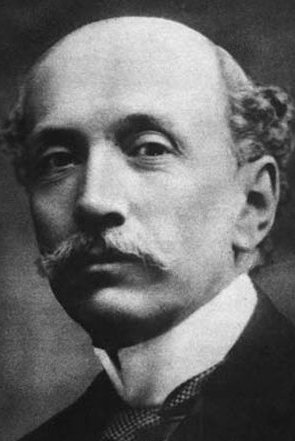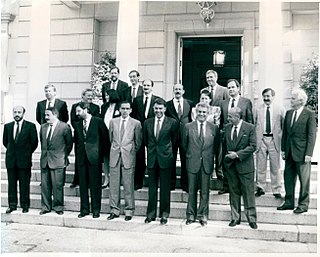
The 1920 Spanish general election was held on Sunday, 19 December 1920 and on Sunday, 2 January 1921, to elect the 19th Cortes of the Kingdom of Spain in the Restoration period. All 409 seats in the Congress of Deputies were up for election, as well as 180 of 360 seats in the Senate.

The 1919 Spanish general election was held on Sunday, 1 June and on Sunday, 15 June 1919, to elect the 18th Cortes of the Kingdom of Spain in the Restoration period. All 409 seats in the Congress of Deputies were up for election, as well as 180 of 360 seats in the Senate.

The 1918 Spanish general election was held on Sunday, 24 February and on Sunday, 10 March 1918, to elect the 17th Cortes of the Kingdom of Spain in the Restoration period. All 409 seats in the Congress of Deputies were up for election, as well as 180 of 360 seats in the Senate.

The 1916 Spanish general election was held on Sunday, 9 April and on Sunday, 23 April 1916, to elect the 16th Cortes of the Kingdom of Spain in the Restoration period. All 409 seats in the Congress of Deputies were up for election, as well as 180 of 360 seats in the Senate.

The 1910 Spanish general election was held on Sunday, 8 May and on Sunday, 22 May 1910, to elect the 14th Cortes of the Kingdom of Spain in the Restoration period. All 404 seats in the Congress of Deputies were up for election, as well as 180 of 360 seats in the Senate.

The 1905 Spanish general election was held on Sunday, 10 September and on Sunday, 24 September 1905, to elect the 12th Cortes of the Kingdom of Spain in the Restoration period. All 404 seats in the Congress of Deputies were up for election, as well as 180 of 360 seats in the Senate.

The 1901 Spanish general election was held on Sunday, 19 May and on Sunday, 2 June 1901, to elect the 10th Cortes of the Kingdom of Spain in the Restoration period. All 402 seats in the Congress of Deputies were up for election, as well as 180 of 360 seats in the Senate.

The 1898 Spanish general election was held on Sunday, 27 March and on Sunday, 10 April 1898, to elect the 8th Cortes of the Kingdom of Spain in the Restoration period. All 445 seats in the Congress of Deputies were up for election, as well as 180 of 360 seats in the Senate.

The 1896 Spanish general election was held on Sunday, 12 April and on Sunday, 26 April 1896, to elect the 7th Cortes of the Kingdom of Spain in the Restoration period. All 445 seats in the Congress of Deputies were up for election, as well as 180 of 360 seats in the Senate.

The 1893 Spanish general election was held on Sunday, 5 March and on Sunday, 19 March 1893, to elect the 6th Cortes of the Kingdom of Spain in the Restoration period. All 442 seats in the Congress of Deputies were up for election, as well as 180 of 360 seats in the Senate.

The 1891 Spanish general election was held on Sunday, 1 February and on Sunday, 15 February 1891, to elect the 5th Cortes of the Kingdom of Spain in the Restoration period. All 442 seats in the Congress of Deputies were up for election, as well as 180 of 360 seats in the Senate. Following a 1890 reform of the electoral law that saw a change from the previous censitary suffrage to a universal manhood suffrage, the electorate was extended to about 27.3% of the country's population.

The 1886 Spanish general election was held on Sunday, 4 April and on Sunday, 25 April 1886, to elect the 4th Cortes of the Kingdom of Spain in the Restoration period. All 434 seats in the Congress of Deputies were up for election, as well as 180 of 360 seats in the Senate. The electorate comprised about 4.6% of the country's population.

The 1884 Spanish general election was held on Sunday, 27 April and on Thursday, 8 May 1884, to elect the 3rd Cortes of the Kingdom of Spain in the Restoration period. All 433 seats in the Congress of Deputies were up for election, as well as 180 of 360 seats in the Senate.

The governor of the Bank of Spain is the head of the Bank of Spain, the central bank of the Kingdom of Spain. The Bank of Spain is integrated in the European System of Central Banks and, as such, the Governor is an ex officio member of the Governing Council of the European Central Bank.

The second government of Felipe González was formed on 26 July 1986, following the latter's election as Prime Minister of Spain by the Congress of Deputies on 23 July and his swearing-in on 24 July, as a result of the Spanish Socialist Workers' Party (PSOE) emerging as the largest parliamentary force at the 1986 Spanish general election. It succeeded the first González government and was the Government of Spain from 26 July 1986 to 7 December 1989, a total of 1,230 days, or 3 years, 4 months and 11 days.

The third government of Felipe González was formed on 7 December 1989, following the latter's election as Prime Minister of Spain by the Congress of Deputies on 5 December and his swearing-in on 6 December, as a result of the Spanish Socialist Workers' Party (PSOE) emerging as the largest parliamentary force at the 1989 Spanish general election. It succeeded the second González government and was the Government of Spain from 7 December 1989 to 14 July 1993, a total of 1,315 days, or 3 years, 7 months and 7 days.
Jaime Miguel Mateu Istúriz is a Spanish politician and member of the People's Party (PP).






















































